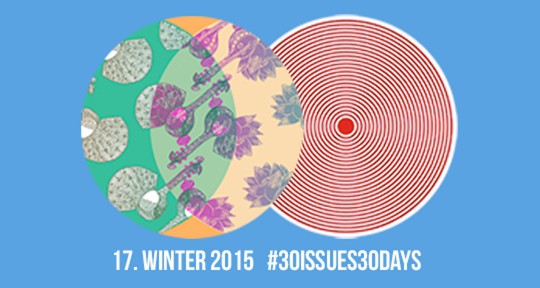If you’re just joining us, we invite you to revisit our first 16 issues via our #30issues30days showcase here. In honor of our milestone 30th edition, we’ll shortly be launching a contest giveaway with a top prize of $200, so watch this space!
2015 was a milestone year for Asymptote: We won a London Book Fair award and partnered with The Guardian. But only Asymptote staff back then know we almost didn’t make it past January. On 15 December 2014, despairing of the lack of progress in fundraising, I wrote the following (lightly edited) email:
“Hello team, I’ve been reassessing the situation. It seems I underestimated the support for the magazine and it doesn’t look as if we’re going to hit our campaign target by December 19. Therefore, we’ll be extending the deadline to January 29, 2015. Our January issue will be pushed back to January 30, the very date of our debut in 2011, four years ago, so that we’ll have come full circle. If we don’t hit the target on January 29, we will announce in the editorial that the Jan 2015 issue will be our very last. Social media and blog activities (including the podcast, very sadly) shall cease with effect from 1 Feb. The magazine will fold. Planning for all activities after January should be halted with immediate effect. Please respect this. Section editors, please do not communicate any more acceptances, and please be prepared to rescind your acceptances for anything after the January issue on the event of our closure, if it does come to that. As promised, we will break for the holidays. (I’ll hold the fort on social media during this time.) In January, we will prioritize work on the January edition as well as the two January events. As for those who are willing to help, we will keep publicizing the IndieGoGo campaign and sending out appeals. We’ll see if the magazine can be saved. (During a recent discussion with the senior editors, the question did arise about whether to shield all of you from the hard reality in front of us. But I don’t think it’s good to keep mum, for morale’s sake; also, I would not be so cruel as to ask you to continue working on projects that may not see the light of publication, or events that have to be cancelled. The reality is that I am simply out of funds, and also depleted in other ways. If we don’t hit the IndieGoGo target, I would prefer to end on a high note and move on.)”
Here to introduce our Winter 2015 issue, released one day after 287 supporters brought us past the finish line of $25,000, please welcome Assistant Editor Victoria Livingstone.
“I am always trying to push the market very hard,” David Damrosch told Asymptote contributing editor Dylan Suher in an interview included in the Winter 2015 issue. The Harvard professor of comparative literature explained that he strives to bring so-called minor literatures into the canon of world literature by translating, anthologizing, and teaching works from underrepresented regions and languages.
Asymptote has been similarly pushing against the market since Lee Yew Leong founded the journal in 2011. When the Winter 2015 issue was published, I was finishing my doctoral work, which focused on connections between political contexts and translated literature. As I was immersed in the work of critics such as Damrosch, I was also reading Asymptote, and I recognized then that that the journal was doing something different. Rather than reproducing the inequalities of what Pascale Casanova calls “the world republic of letters,” Asymptote was giving—and continues to give—voice to languages and regions across the globe without ever lowering the curatorial bar. READ MORE…


